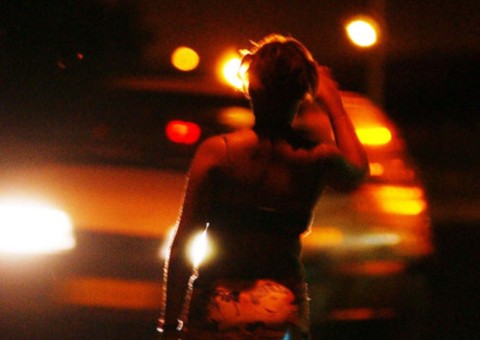South Africa is standing on the edge of a huge social shift one that could change thousands of lives overnight. The question isn’t new, but it’s never been more urgent: should sex work finally be decriminalized? For years, lawmakers, activists, and sex workers themselves have been pushing for change. And now, after decades of criminalization and stigma, it seems the country might actually be ready to take that step.
Life in the Shadows: What It Means to Be a Sex Worker in South Africa
To understand the debate, you have to see what the current system looks like. Right now, both buying and selling sex are illegal under South African law.
That means sex workers live in constant fear not just of violence or abuse, but of arrest. Imagine being robbed or assaulted and not being able to go to the police because you might end up in jail instead.
Many say that criminalization has turned what could be a profession of choice into a dangerous game of survival. Police harassment, extortion, and stigma are daily realities. Condoms, which should mean safety, are often used as “evidence” of a crime.
One worker, Connie Mathe, told DW that she didn’t even realize she was technically “doing sex work” when she started. “He paid the rent, came for sex I thought it was just a relationship. My friend told me, ‘Girl, that’s sex work.’” Her story mirrors thousands of others.
The Push for Change: Why Activists Want Full Decriminalization
For years, organizations like SWEAT (Sex Workers Education & Advocacy Taskforce) and the Asijiki Coalition have been fighting for one clear goal: decriminalization not just legalization.
There’s a difference. Legalization would mean strict state control rules, licenses, designated areas. Decriminalization, on the other hand, simply removes the penalties for consenting adults. It treats sex work like any other form of labor.
Health experts, human rights lawyers, and even parts of the government agree: this could save lives. It would make it easier for sex workers to report crimes, access healthcare, and protect themselves from exploitation.
In 2022, the government introduced a bill to do exactly that to scrap all criminal penalties for buying or selling sex. It was a bold move. And while it hasn’t passed yet, it’s still alive in Parliament.
The Courtroom Battle: A Turning Point for the Industry
Right now, the fight is unfolding in court. The Western Cape High Court is hearing a case that could change everything a constitutional challenge arguing that criminalizing sex work violates the right to equality, dignity, and freedom.
In a surprising twist, the National Prosecuting Authority has already issued guidance telling prosecutors to stop pursuing new sex work cases. That’s not an official law, but it’s a powerful signal that the tide is turning.
For many workers, this pause feels like the first breath of freedom they’ve had in years.
The Critics’ Side: Why Not Everyone Supports Decriminalization
Of course, not everyone is cheering. Some religious and conservative groups say decriminalization could “normalize immorality” or fuel human trafficking. Others worry about how to regulate such an industry safely especially to protect minors and prevent exploitation.
But evidence from countries like New Zealand, which decriminalized sex work back in 2003, tells a different story. There, sex workers have safer conditions, less violence, and better health outcomes. The sky didn’t fall people just got rights.
Health and Safety: The Human Side of the Law
This debate isn’t only about legal texts or court rulings it’s about people.
In South Africa, where HIV remains a massive public health challenge, criminalization makes things worse. When sex work is illegal, people are afraid to carry condoms, get tested, or even visit clinics. Decriminalization would allow outreach programs to actually work.
It’s also about mental health. Living in fear, hiding from police, and being treated as “less than human” takes a deep toll. Many workers describe the exhaustion of having to constantly lie about their jobs to their families, friends, landlords.
Decriminalization wouldn’t make life perfect, but it would make it livable.
What Happens Next?
The next few months will be critical. The court case continues, and the Justice Department says it still plans to move ahead with the new bill though in stages.
If South Africa fully decriminalizes sex work, it will become one of the first countries in Africa to do so. That would send a powerful message across the continent a statement that says: protecting human rights is not negotiable.
Still, passing the law is only step one. The real work will be training police, creating clear regulations, and changing public perception. Laws can shift overnight attitudes take years.
Why This Matters Beyond South Africa
The world is watching. Across continents, debates about sex work are heating up. Countries like Canada, the UK, and parts of the US are still struggling with similar questions.
If South Africa succeeds, it could become a model showing that decriminalization can actually reduce harm, not increase it.
At its core, this is a fight about choice, safety, and dignity. It’s about giving people control over their own bodies and work without fear.
And maybe, just maybe, it’s about something even bigger: finally treating sex workers as citizens, not criminals.
A Moment of Truth: What South Africa’s Sex Work Debate Really Says About Progress and Humanity
Whatever your view, one thing is clear the conversation can’t be ignored anymore. Sex work exists. It always has. The question isn’t whether we like it; it’s whether we protect the people doing it.
For South Africa, this is a rare chance to lead with compassion instead of punishment. To make laws that reflect real life, not old prejudice.
And that’s something worth watching and hoping for.













